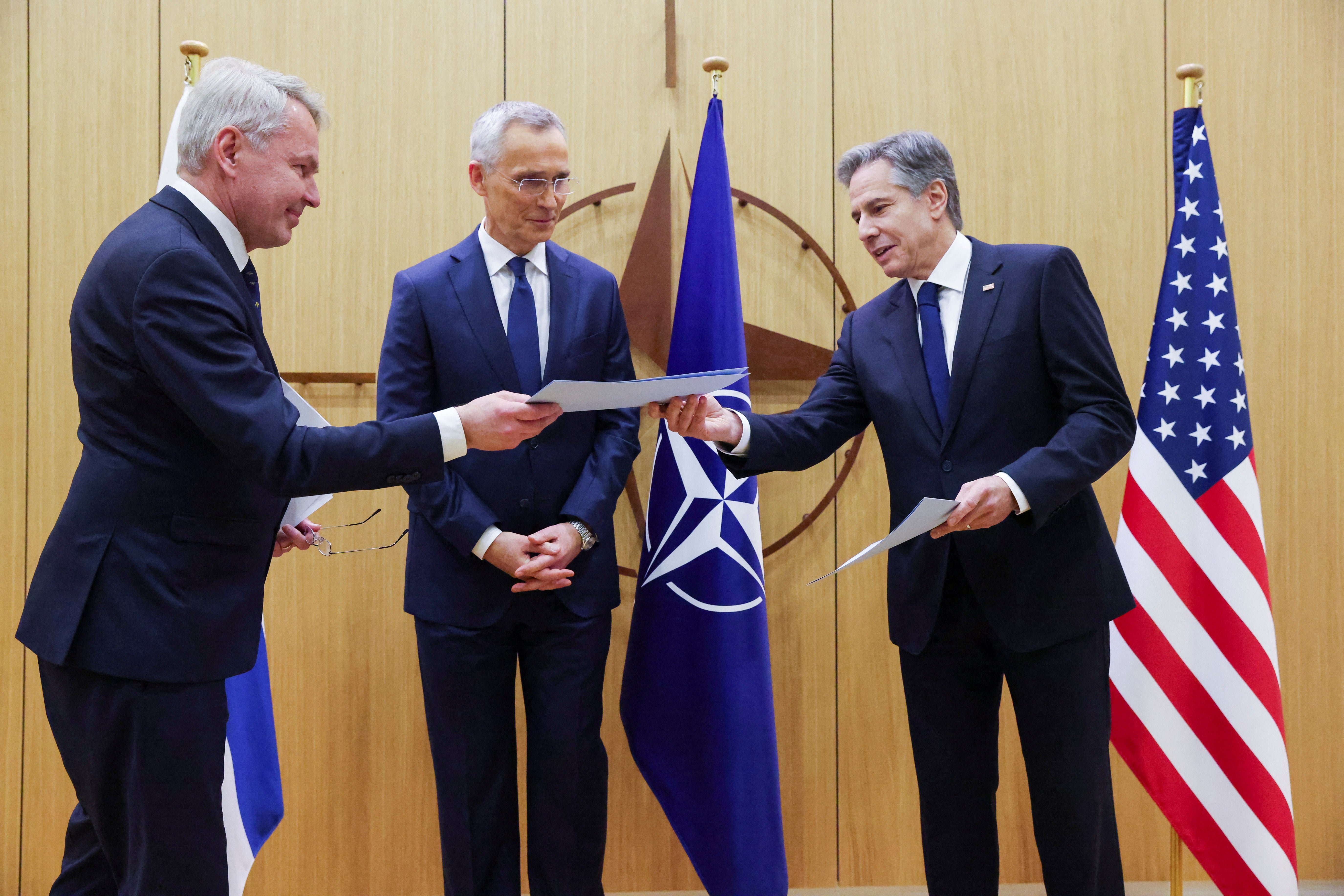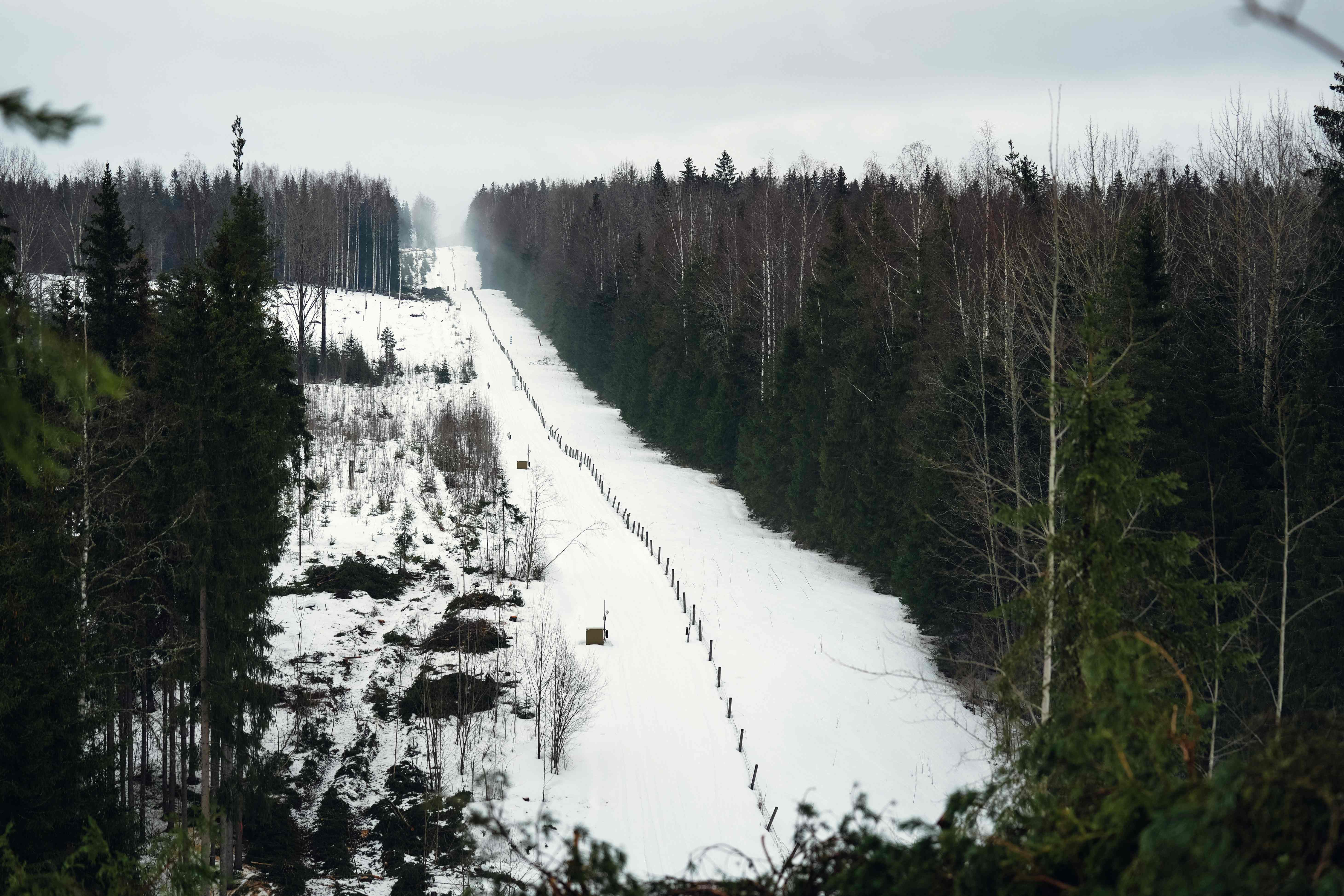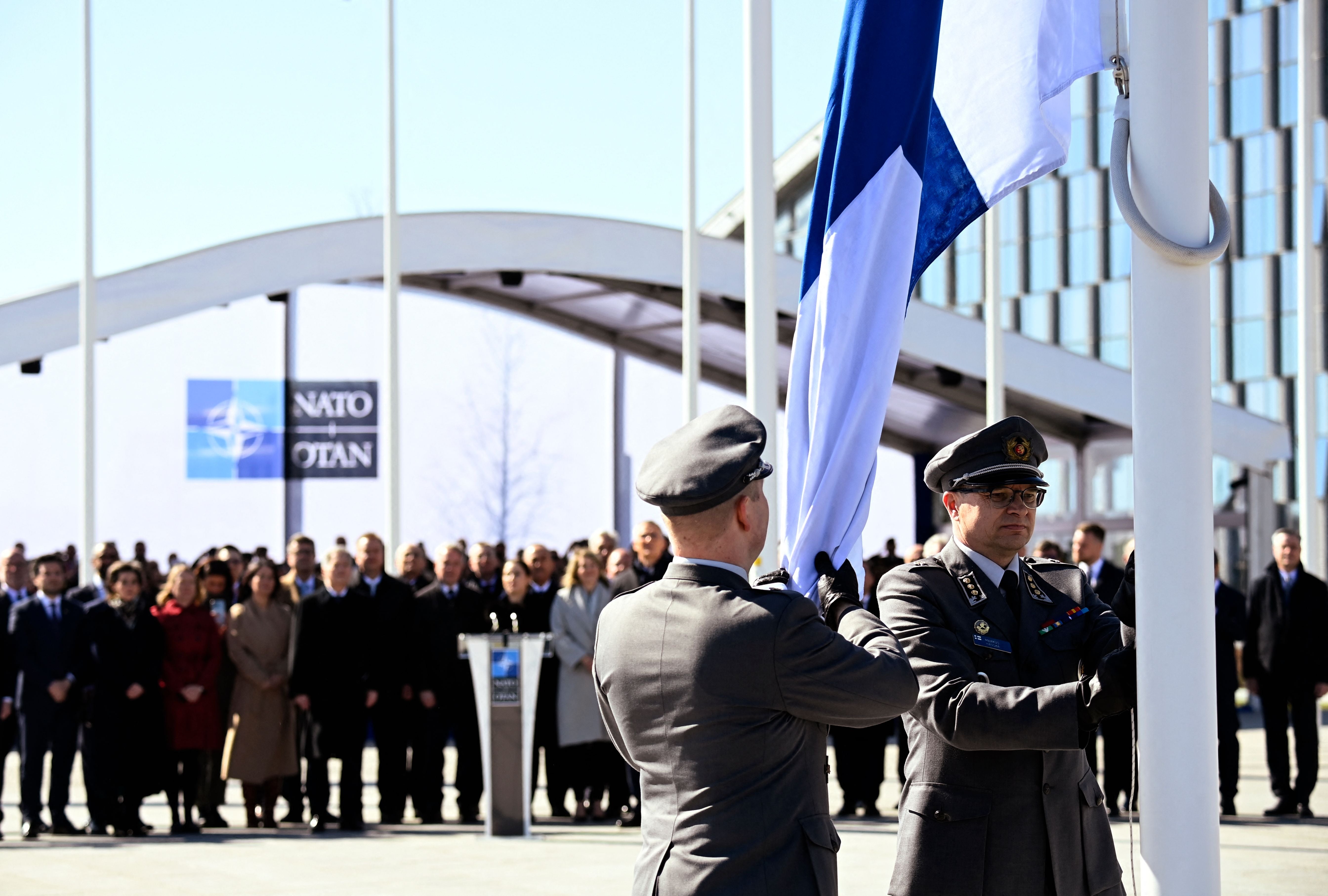‘A new era begins’: Finland joins Nato, doubling alliance’s border with Russia
Moscow threatens countermeasures saying: ‘History will judge this hasty step’

A historic realignment of Europe triggered by Vladimir Putin’s invasion of Ukraine was cemented on Tuesday as Finland became the 31st member of Nato, dealing a major blow to Moscow.
Its accession roughly doubles the length of the border that Nato shares with Russia to 2,500km (1,600 miles), and bolsters its eastern flank as the war in Ukraine grinds on with no resolution in sight.
Finland had been neutral after its defeat by the Soviet Union in the Second World War, but Mr Putin’s February 2022 invasion led to a rapid rethink.
“The era of nonalignment in our history has come to an end – a new era begins,” President Sauli Niinisto said before his country’s flag was raised outside Nato headquarters in Brussels.
Finland says it can muster a 280,000-strong fighting force, built on near-universal male conscription and a large, well-trained reserve, equipped with modern artillery, warplanes and tanks. The country of 5.5 million joined the European Union in 1995.
It is a strategic and political defeat for Mr Putin, who has long complained about Nato’s expansion toward his territory and partly used it to justify his invasion. The alliance says it poses no threat to Moscow.

Moscow warned it would take “countermeasures” against what it called the security threat created by Finland’s membership. It had already warned that it would bolster defences along its border with Nato if the alliance deploys any additional troops or equipment to its new member.
Ukrainian president Volodymyr Zelenskyy sent his congratulations to Finland, writing on Telegram that “amid Russian aggression, the Alliance became the only effective guarantee of security in the region”.
Sweden, which borders Finland and has avoided military alliances for more than 200 years, has also applied. But objections from Nato members Turkey and Hungary have held up the process.
Jens Stoltenberg, Nato secretary general, said Finland’s turn to the security offered by the alliance was down to an error of judgement by Russia. “Putin had as a declared goal of the invasion of Ukraine to get less Nato. He is getting exactly the opposite.”
Mr Stoltenberg said no more troops would be sent to Finland unless it asked for help but he refused to rule out the possibility of holding more military exercises there and said Nato would not allow Russia’s threats to dictate decisions.
The Kremlin called the expansion an “encroachment on our security and on Russia's national interests”.

“Helsinki's policy of military non-alignment had long served Finnish national interest,” Russia’s foreign ministry said in a statement. “This is now a thing of the past. We are sure that history will judge this hasty step.”
In St Petersburg, only 150km (93 miles) from the Finnish border, a resident who gave his name as Nikolai told Reuters that Russians would now view Helsinki as hostile. “There is absolutely no doubt that Finland is making problems for itself by joining,” he said.
Finland’s parliament said its website was hit by a so-called denial-of-service attack; a pro-Russian hacker group known as NoName057 (16) claimed responsibility, but the claim could not be immediately verified.

Finland’s membership became official when foreign minister Pekka Haavisto handed over documents completing its accession process to US secretary of state Antony Blinken in Brussels. The US State Department is the repository of Nato texts concerning membership.
Joe Biden noted the event came on the 74th anniversary of the signing of Nato’s founding treaty on 4 April, 1949.
“Today, we are more united than ever,” he said. “And together – strengthened by our newest ally, Finland – we will continue to preserve transatlantic security, defend every inch of Nato territory, and meet any and all challenges we face.”
In London, Rishi Sunak said Finland’s accession “has made our alliance stronger and every one of us safer”.

French president Emmanuel Macron, who hours earlier approved a huge rise in millitary spending in response to the Ukraine invasion, wrote on Twitter: “Welcome to Nato, Finland!”
Each leader added that they wished to see Sweden granted membership soon, with Mr Biden and Mr Sunak urging Turkey and Hungary to end their opposition.
Sweden has irked politicians in Turkey by criticising its government for human rights abuses and a decline in democratic standards, while Hungary, which has been subject to similar criticisms from Stockholm, is seen to be following Ankara’s lead.
Analysts are looking to Turkey’s 14 May election, in which long-serving president Recep Tayyip Erdogan risks defeat, as a potential turning point.






Join our commenting forum
Join thought-provoking conversations, follow other Independent readers and see their replies
Comments